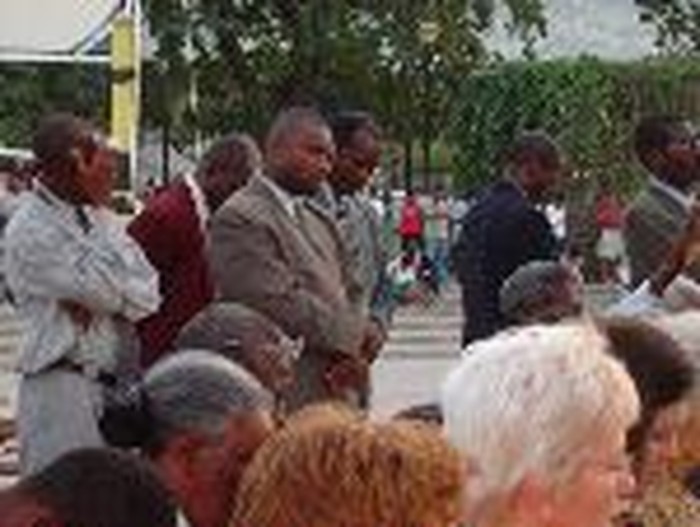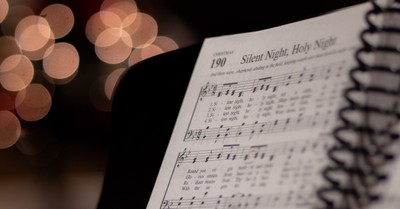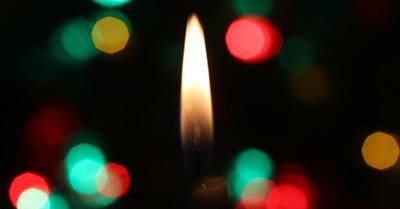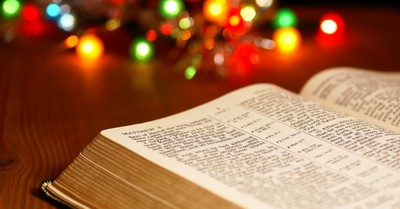Radical Reconcilers: Being the Unified Body of Christ
- Efrem Smith Youthworker Journal
- Published Dec 17, 2004

I will never forget going, as a teenager, to a family reunion in Detroit. Since I'm African-American, I was sure that I was going to an all African-American family reunion. With that in mind, I said good-bye to all my Asian, European-American, and Latino friends; I didn't expect to see faces similar to theirs until I got back.
When I arrived at the reunion, the festivities began with a dinner and opening program during which a cousin of mine, who is a professional genealogist, began to talk about my family history. She began by revealing that my great, great grandfather on my mother's side was full-blooded Irish. Irish? I began to think I was at the wrong family reunion!
She went on to say that my Irish great, great grandfather married a woman who was half African-American and half Cherokee. They had a son, my great grandfather, whose skin was so light that he could pass for white. He had a son, my grandfather, who had very light skin and long, straight, shiny black hair that he wore down to his shoulders.
When I left that family reunion my life was changed. "I'm Irish," I thought to myself. "But not just Irish, I'm also Native American!" I couldn't look at Native Americans and talk about "those people," because they're my people. I could no longer see myself as just black, because I realized that I'm much more than that. Now that I'm an adult, I have still another perspective on who I am and to whom I'm related.
Remembering Our Roots
"Yet to all who received him, to those who believed in his name, he gave the right to become children of God-children born not of natural descent, nor of human decision or a husband's will, but born of God" (John 1:12-13).
As children of God, we're supernaturally related to all those who claim Jesus Christ as Lord and Savior. Regardless of their ethnicity, they're our brothers and sisters. The problem is that many local churches don't act on this; and, today more than ever, we desperately need to claim the whole family of God.
I believe our God calls us to a greater perspective, and the young people in our youth groups must experience that perspective. In times such as these, we need to show young people that Jesus' central mission was reconciliation; and through that reconciliation, we get to see that sneak preview of heaven.
Gaining Another Perspective
"So from now on we regard no one from a worldly point of view. Though we once regarded Christ in this way, we do so no longer. Therefore, if anyone is in Christ, he is a new creation..." (2 Corinthians 5:16-17).
In many ways the most segregated hour in America is still 11:00 a.m. on Sunday morning. The answer to overcoming this disunity lies in the future, so we must teach and equip this generation of young people to dismantle stereotypes, social dividing walls, and other ethnic divisions.
Our young people must be empowered to construct a true Christ-centered, multi-ethnic, transformative community. It begins with seeing all Christians as brothers and sisters. We can help start this process by building proactive relationships with youth groups across ethnic, denominational, and even geographic lines. Partnered youth groups could go on mission trips together, serve each other's churches and communities, or come together for fun events once a month. Then each of these partnered youth groups could find another youth group of a different ethnicity and/or denomination and continue.
Sounds like a whole new concept to growing your youth group, doesn't it? It also sounds like a sneak preview of heaven.
From here, our youth groups need a new perspective on how to see the rest of humanity-those outside the body of Christ-so that they regard no one from a worldly point of view. Scripture says that God created animals "according to their kinds." That means an elephant was not made to have a baby with a tiger.
Too often we view people of different ethnicities as being different species.
But humanity-all of humanity-was made in God's own image. We weren't made to live in racial lines of black, white, red, and yellow. Race is a human construct that is biblically irrelevant. To regard people in terms of their race is to regard them from a worldly point of view.
We must release young people from this race-based society that has cursed the body of Christ. Only then can they become radical reconcilers who are in the world but not of it.
Reclaiming Our Heritage
"All this is from God, who reconciled us to himself through Christ and gave us the ministry of reconciliation" (2 Corinthians 5:18).
By saying that we should dismantle the curse of race, I'm not saying that we should negate ethnicity. Recognizing our ethnic diversity gives us an opportunity to gain a greater understanding of the fullness of Christ. Being totally "color blind" is just as unhealthy as buying into a race-based structure.
But this race-based structure is unhealthy because it's always based on one race being superior to the rest. This is very evident in Westernized Christianity, in which Jesus, angels, and all biblical characters are almost universally portrayed as white. This continual portrayal has served as a major obstacle to reconciliation and unity in spite of all the rallies, conferences, and crusades. You can't call for true reconciliation while promoting "White Christianity."
Regardless of the ethnic makeup or denomination of our church, we must teach young people about the true multi-ethnic, Christ-centered, and transforming community. For Christianity to truly have relevance in these times, we must reclaim our true heritage as the body of Christ.
On the day of Pentecost, the book of Acts says, "Now there were staying in Jerusalem God-fearing Jews from every nation under heaven." The Spirit of God came upon the apostles and they began to speak in supernatural and multi-lingual tongues. Each person in the large multi-ethnic crowd heard the Gospel of Jesus Christ in their own native language. Then Peter began to preach to this multi-ethnic crowd, and "about three thousand were added to their number that day." After this event, people didn't go back to life as they'd known it; the first Christian church was built from this multi-ethnic, community.
Living In Unity
"They devoted themselves to the apostles' teaching and to the fellowship, to the breaking of bread and to prayer. (Acts 2:42)"
They'd been saved by the grace of God, and they responded with true Christian fellowship. This diverse community prayed, ate, laughed, and learned together in unity. They were the Body of Christ. This is our root as the Christian Church.
If we teach this chapter to young people in its authentic state, they may gain an awesome revelation similar to the one I had as a teenager at my family reunion. They might never again regard other people from a worldly point of view. They might see others as their brothers and sisters.
Then, the next time your youth group goes on a mission trip, they wouldn't say, "We're going to serve those people." They would say, "We're going to serve our people."
They would show grace.
They would be radical reconcilers.
They would be the Body of Christ.
Efrem Smith is the associate pastor at Park Avenue United Methodist Church and the executive director of the Park Avenue Foundation for Youth and Family Development in Minneapolis, Minn. He's been a speaker for the Youth Specialties National Youth Worker's Convention, Athletes in Action, and Cornerstone Music Festival. And he's a contributing editor for Youthworker journal.

The above author bio was current as of the date this article was published.
(c) 2004 CCM Communications

.jpg)


















